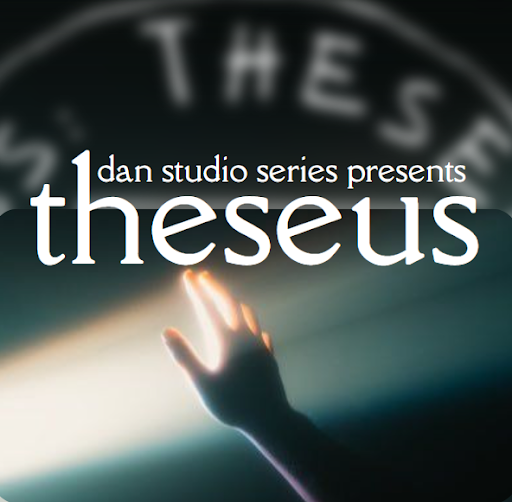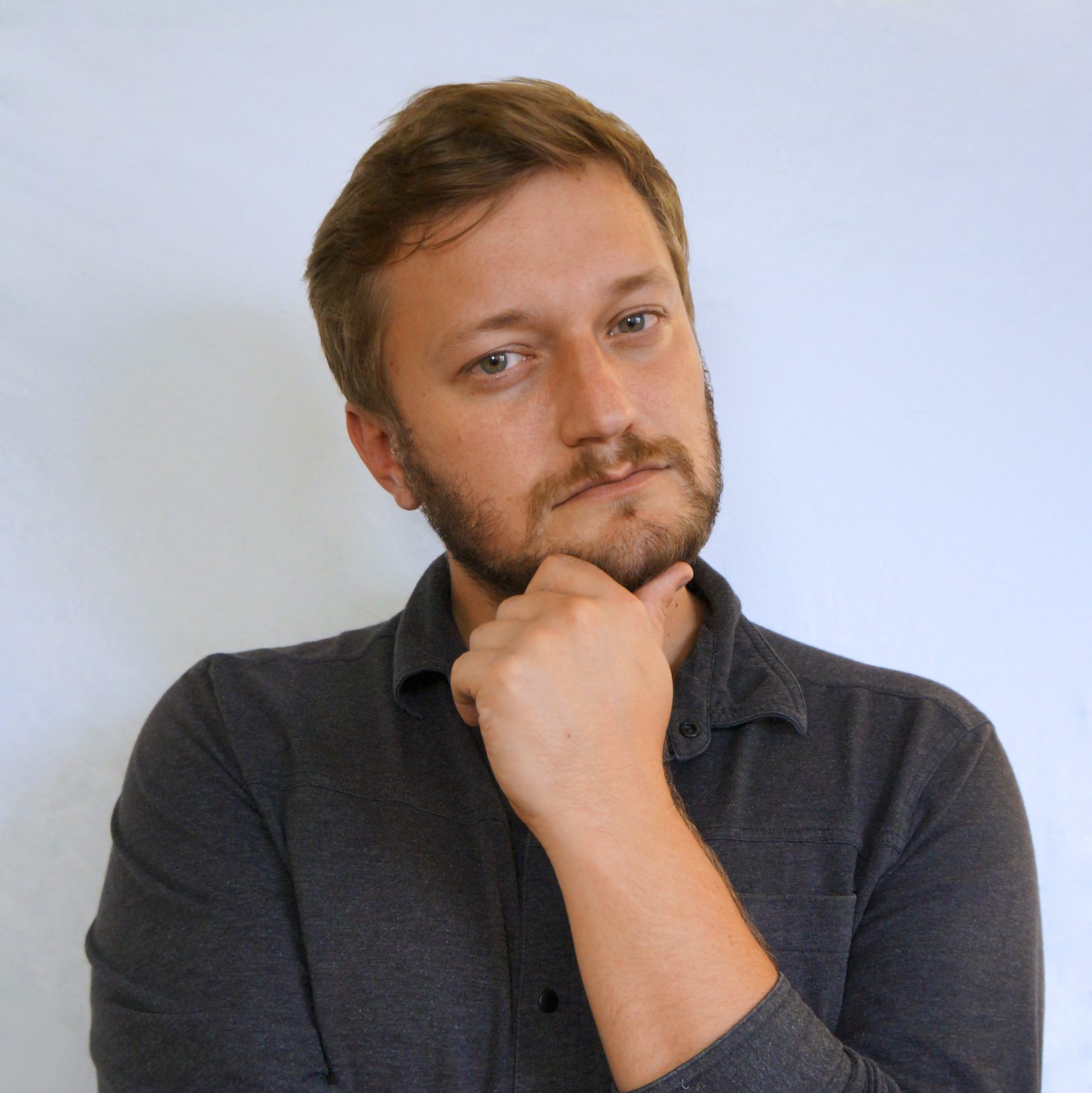What Future Theatre Makers Have to Offer

Lift Ideas from the page to the stage
On March 26th, I was fortunate enough to witness what some of Kingston’s next generation artists are interested in bringing to theatres in the coming years. The DAN Studio Series Theseus, to my surprise, was not an adaptation of the Greek stories, but a series of four short pieces that reflect the ideals the title refers to–resilience, affirming identity, and ideological conflict. While those ideas may align more with Homer’s Odyssey than Theseus’ stories (which ironically is alluded to in the Producers’ Note in the program) this series seems to be a spirited continuation of a previous series that did go by the name of Odyssey.
The Fountain, created by Nathan Carter and directed by Madelena Byrnell, focused on a trio of characters searching, seemingly eternally, for a fabled fountain. Christian, Maude, and Jaden are each actualizations of nihilism, optimism, and stoicisim, but if these characters represent distinct schools of thought, what choices are made to represent their conflicting views on stage and in turn, how is the text elevated by these choices? What might nihilism look like on stage? Is it slow or fast in its speech? Is its movement lethargic or spontaneous? Where in the body does nihilism exist, and can we lead all action from that place?
Such physicalization could’ve elevated the contrast and conflict between the characters and lift the text from the page and onto the stage, but each character moved on stage in the same, almost haphazard way. Their voices betrayed an unintentional similarity and their expressions relied heavily on naturalism furthering the obscurity of what the piece has to say about these ideological frameworks. However, assistant stage manager Bailey Beiganek had to step in for Maude last minute, so it is with benefit of the doubt that I say this may have been the intent in the original actresses portrayal. Kudos to Beiganek, as a last minute step in is daunting even for veteran performers.
Created by Nicole Calvo and directed by Meg Mcleod, Cowboy Mike and the Golden Cattle is a western genre take of Jason and the Argonauts heavily applied through the titular golden cattle as a living and innocent creature destined for slaughter to satiate unjust gods. It’s the age-old conflict of the needs of the many having precedence over the needs of the few, which in tandem with its moral lens of environmentalism, had me ruminating on capitalist markets, the meat industry, and the wanton disregard for environmental impact when trying to appease the millionaire overlords. By nature of comedy, the obstacles of characterization were well masked through humour. This issue did have an exception in Cristian Pertea’s drunk sailor, who was surprisingly splendid in both movement and tone—well done!
These can be striking stories that draw upon audiences’ own internal conflicts, but here, the performance is leading the audience to the “right” answer. What is the right answer though? If thousands of people could be saved with the sacrifice of one, how do we communally cope with that? What would’ve made for an enthralling and epic moral tale is if Cowboy Mike (Riley Vallom) had acquiesced to the demands of his village’s leader and sacrificed the cattle he swore to protect. Instead, the performance goes for a happy ending where innocence is protected, the well-being of every citizen is maintained, and all can smile at the end of the day. Refusing this ending could have been a powerful contrast to the comedic tone of the piece, leaving the audience to question their own views on totalitarianism and the ethical consequences of a competitive labour market in which they themselves actively live.
Ham and Cheese and the Search for the Bagel, created by Zachary Pasquino and directed by Charity Wessel, explored how the search for a perfect love often results in losing love you already have through the unflinchingly focused Ham (Grace Irwin), cheerfully supportive Cheese (Mia Lihtinen), and Jenny (Jordyn Desabrais) who pokes fun at their shared emotional turbulence. The lighting in this performance was a step above the rest with Desabrais in particular dancing through its border ducking in and out of reality like an apparition, making her commentary of Ham and Cheese all the more impactful.
Meta-commentary and fourth wall breaking can be amusing, but it is at its best when the audience’s intellectual capabilities are given credit. The need to explain a joke or why something is funny often signals either that the joke was not funny at all, or that there is concern over the joke being relatable to a general audience. I implore Pasquino to assume they are writing for an intelligent audience as most every joke landed, but the explanations and conversation with the audience through the character of Jenny actually detracted from the enjoyment of the well-written humour.
I have struggled immensely to write about this final piece, partly because it deals with mental health, particularly suicide, and I have been studying this field recently as I pursue a career shift from theatre towards mental health and addictions work. Created by Caroline Williams and directed by Paige La Fraugh, Make You Work Hard, Make You Spend Hard brings humour to the difficulties surrounding getting help and reaching out to loved ones, and disarming the severity of these struggles through tactful comedy is actually a good thing. The jokes here are never at the expense of Jake (Jake Henderson) and actually serves to alleviate the tension around the subject, which is a powerful tool and was tastefully done, for the most part.
The play culminates in Jake’s sister Blake (Alison Bubeqi) telling him that he shouldn’t end his life because his death would hurt their family. He should consider the people who have to live after he is gone. What sounds like a reasonable deterrent actualizes as shame and guilt for people with suicidal ideations, and those feelings often become major motivators in their attempts. This dialogue in particular can worsen the situation and it is always beneficial to help someone who opens up about suicidal ideations or plans to connect with a professional who knows how to support. This is somewhat countered by Jake’s friend foil Daisy (Devon Sweeney), who is processing her own traumas in therapy, but the connecting thread that brings Jake and Daisy together at the end of play speaks to an ill-informed perspective that we should go on living for love or romance. This subtle form of trauma bonding can actually be extremely damaging and create toxic codependency. Ultimately, it was difficult to enjoy this piece as it felt like a message to the audience about how to deal with these issues while advising them almost entirely on the wrong things to do.
The Dan Studio Series Theseus was an interesting series of shows to say the least, ranging from existential crises to Western moral stories. These performances show promise for the coming years of theatre creators, but I encourage these students to explore the boundaries of movement, lighting, set, and sound to create something beyond what’s natural onstage. Seek artistic development beyond the confines of your university education, as this learning can often be a shallow basin in which to fill your creative vessel.
Theseus was streamed online Saturday March 26th at 1pm from the Dan School of Drama and Music at Queen’s University. Click here for more information regarding the program and all those involved.
